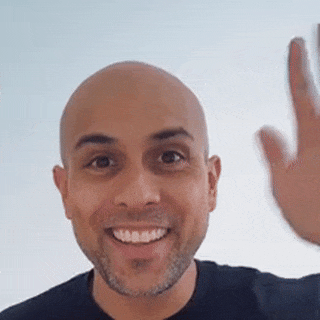We got qualified leads from ChatGPT! And you can too!
And the crazy part? I don’t think it has to do with anything special to make it happen. We’ve just continued to build out our site using SEO best practices and answering specific customer questions.
But here’s more…
💡 Quick Helpful Resource - Download our free Webflow SEO Checklist.
The Accidental Discovery
A few months back, I was reviewing our Google Analytics and noticed traffic coming from chatgpt.com.
My first thought was "that's not real" or it's some kind of bot noise. Then I actually looked at what these people were searching for and which pages they were landing on.
Someone asked ChatGPT: "I need a web designer who understands international schools."
ChatGPT referred us.
Then: "Help getting Webflow site to show up in AI."
To us again.
Then: "Web designer in Paris area (where I live)."
And again.
As cool as these are, I was asking myself, “how?” and “is this random?”
But after speaking to the these people, it turns out that these weren't random.
They were specific queries about services and industries we specialize in. So I did what I always do when something interesting happens: I dug into it. Not to "optimize for ChatGPT" (whatever that even means), but to understand what was actually going on.
Turns out, it's simpler than everyone thinks and probably changes how you should think about visibility in AI.
Someone asked ChatGPT: "I need a web designer who understands international schools."
ChatGPT referred us.
Then: "Help getting Webflow site to show up in AI."
To us again.
Then: "Web designer in Paris area (where I live)."
And again.
As cool as these are, I was asking myself, “how?” and “is this random?”
But after speaking to the these people, it turns out that these weren't random.
They were specific queries about services and industries we specialize in.
How ChatGPT's Web Search Actually Works
ChatGPT has web search built in now. When someone asks it something, ChatGPT pulls recent results from the web and includes them in the answer. It's not that different from Google on the surface. The real difference is in how people ask questions.
When you search Google, you're doing keyword research. You type "web designer Paris" and scroll through results. But when you ask ChatGPT a question, you're describing what you actually need. "I run international schools and our previous FinalSite is too expensive and so I want to explore building it with someone who knows Webflow and SEO." That's a real question about a real problem.
ChatGPT's web search is matching those conversational, specific questions to actual pages on the web. And here's the kicker: you don't need to "optimize for ChatGPT" to show up. You just need to exist as the actual answer to the question someone's asking.
We were showing up in ChatGPT results because we have real pages about international school web design. Real case studies with schools. Content about Webflow SEO. We built all that because we actually work in that market.
ChatGPT mentioned us because we were the genuine answer to those questions. (If you want the more tactical breakdown, we wrote a longer guide on AI search optimization.)
Our international schools work is a good example of this. We're not generic "web designers." We're positioned as people who specifically understand the market, the challenges, and the solutions.
The Real Lesson: It's Narrow Positioning
Everyone's losing their minds about "ChatGPT optimization" right now. New tools. New frameworks. New things to add to your to-do list. But here's what actually happened with us: we didn't optimize anything.
We just try to write around our specific niche, which includes Webflow and SEO.
I have the impression that ChatGPT and other AI-tools are capable of reading actual pages and matching them to actual questions people ask based on quality content and referrals that give some sort of trust indication.
ChatGPT rewards is clarity.
Specificity.
Actually serving a market instead of trying to serve everyone.
The businesses we're seeing find us through ChatGPT aren't finding us by accident. They're finding us because we made a choice early on: be really good for a specific market instead of okay for everyone. We understand international school challenges. We understand education websites. We understand the expat markets. And we've built our entire presence around that.
When someone asks ChatGPT "who can build us an international school website on Webflow with SEO built in," we show up because that's literally what we do. Not because we optimized for the phrase. Because we are the answer.
What This Actually Means For Your Business
So if you're reading this thinking "okay, how do I get ChatGPT traffic," here's the honest answer: you don't "get" ChatGPT traffic. You build a specific business, do good work, and document it honestly. ChatGPT's web search just finds you.
But let me be more practical. Here's what we've learned works:
Be specific about what you do and who you serve. For us, we don’t want to say we do "web design" but rather "Webflow web design for education organizations." Not "SEO" but "SEO for Webflow sites serving SaaS." The more specific you are, the more likely ChatGPT is to surface you when someone asks a specific question.
Show your actual work. Case studies matter. Not generic testimonials but real projects with real results in your specific market. When ChatGPT's search is looking for evidence that you actually serve a market, this is what it finds. And it's what potential clients care about too.
Write content that serves your specific market. We get ChatGPT traffic to posts about Webflow schema, education website SEO, and international school challenges because those are specific problems we understand. Not generic "top 10 SEO tips." Content that actually solves problems for a specific audience.
Don't create separate "AI optimization" stuff. This is the biggest trap. You don't need special pages or special content strategies for ChatGPT. You just need your regular business stuff to be clear, well-structured, and honest about what you do.
Why This Matters More Than Just "Getting ChatGPT Traffic"
Here's what I think is actually happening right now, and it's bigger than just ChatGPT.
For the last 15 years, if you wanted to be found online, you optimized for search engines. You did keyword research, built backlinks, played the ranking game. It worked. It still works. But it's impersonal. The algorithm doesn't care about your actual business.
ChatGPT and the other AI tools change this. They're not ranking pages based on links and keywords. They're answering real questions from real people. And they're looking for actual answers, not optimized content.
That means if you're specific about what you do and you actually do it well, you're going to show up. Not because you optimized. Because you're the real answer.
For service-based businesses and agencies, this is actually good news. You can't outspend a big brand on traditional marketing. But you can be more specific. You can focus on one market so deeply that when someone asks an AI "who understands this exact problem," you're the answer.
That's a real competitive advantage. And it's not something you can outsource or automate. It's something you build.
The Practical Side
If you're thinking "okay, so what do I actually do with this," here's the straightforward version.
1. Get clear on your market.
Not "web design" but what kind of web design for what kind of business. Not "SEO" but SEO for what industry, what company size, what problem. The specificity is the entire play.
2. Do real work in that market and show it.
Real case studies. Real results. Real people you've helped. This isn't marketing fluff. This is the evidence that you actually understand the market and can solve the problem.
3. Write about the problems you solve.
Not generic how-tos. Content that someone in your specific market would actually find useful. If you work with education nonprofits, write about their specific challenges. If you work with e-commerce agencies, write about their problems. ChatGPT will surface this content when someone asks about those problems.
The reason this works is because you're not trying to trick anything. You're just being honest about what you do, showing your work, and writing about problems you understand. ChatGPT finds you because you're genuinely useful.
This specificity is becoming a real competitive advantage for small businesses and agencies that can't compete on budget but can compete on focus and expertise.
What Comes Next
We're watching how this plays out across ChatGPT, Gemini, Claude, Perplexity, and whatever else launches. The pattern seems consistent: they reward specificity and genuine expertise. That's good.
What's interesting is that this pushes businesses toward clarity about what they actually do. You can't be vague when an AI is reading your site and matching it to real questions. You have to know your market. You have to be able to articulate what you solve. You have to have proof.
For service-based businesses, that's a real advantage over trying to outbid competitors on Google Ads or chasing random SEO trends. Be specific. Be real. Show your work. The AI tools will find you because you're genuinely useful.
That's how this works. Not algorithms. Not tricks. Just honest positioning and real expertise.
If you're running an agency or service-based business and want to figure out if you're positioned clearly enough to be found by AI search (and traditional search), we should talk. We work with teams who are tired of being generic and want to own their niche.



